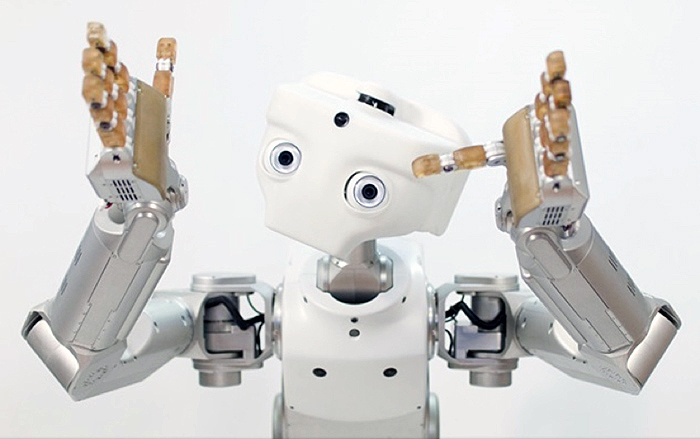Forget robotic product delivery. As usual for Google, I suspect it’s all about the data.

Google-bot: The M1 Mobile Manipulator from Meka, one of several robot companies acquired recently by Google.
Google has quietly bought seven robotics companies, and has given Andy Ruben, the man who originally led the Android project, the job of developing Google’s first robot army. And so, the New York Times suggests it might only be a few years before a Google robot driving in a Google car is delivering products to your door.
I somehow doubt Google has anything quite so futuristic in mind. I think the effort is quite similar to both Google’s self-driving car endeavor and its Android project. In other words, it’s all about gaining a dominant position in markets where data is about to explode.
Take Google’s self-driving cars. Contrary to common perception, the company didn’t “invent” this technology; most car-makers were already working on autonomous system when Google got involved, and academic researchers had made dramatic recent progress—propelled in large part by several DARPA challenges (see “Driverless Cars are Further Away than You Think”). Google just saw that this was where the automotive industry was headed, and realized that the advent of automation, telematics, and communication would mean a tsunami of data that it could both supply and profit from. Given that many of us spend several hours a day in automobiles, this data could help Google learn more about users and tailor its products accordingly.
Similarly, I suspect Google has recognized that a new generation smarter, safer, industrial robots is rapidly emerging (see “This Robot Could Transform Manufacturing” and “Why This Might be the Model-T of Workplace Robots”), and it’s realized that these bots could have a huge impact both at work and at home. Whoever provides the software that controls and manages these robots not only stands to make a fortune by selling that software; they will have access to a vast new repository of data about how will live and work.
In this sense, I think Google is being true to its stated mission: “to organize the world’s information”—although it’s worth noting that in an increasingly connected and data-rich world that could mean seeking to organize just about every aspect of our lives. Luckily for Google, it may soon have a robot army to help it keep everything in order.



Shares